Kanchana Sita est un film de genre Drame réalisé par G. Aravindan avec Prem Nazir
Kanchana Sita (1978)
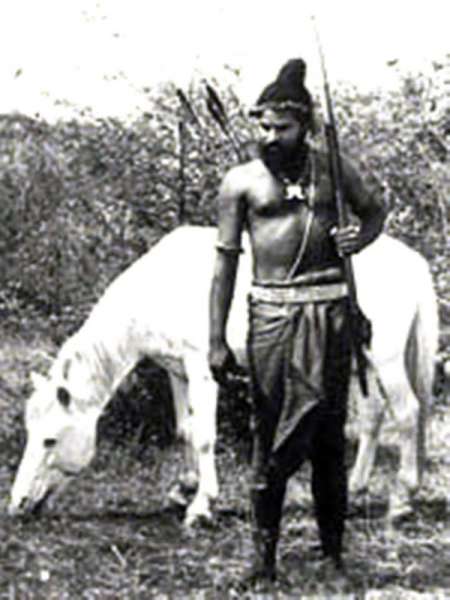
Si vous aimez ce film, faites-le savoir !
- Infos
- Casting
- Infos techniques
- Photos
- Vidéos
- Passages TV
- Citations
- Personnages
- Musique
- Récompenses
Kanchana Sita (Malayalam: കാഞ്ചനസീത, English: Golden Sita) is a 1977 Indian Malayalam feature-length film scripted and directed by G. Aravindan. A mythological film, its story was adapted from C. N. Sreekantan Nair's play of the same name, which is a reworking of Valmiki's Ramayana.
The film interprets a story from the Uttara Kanda of the epic poem Ramayana, where Rama sends his wife, Sita, to the jungle to satisfy his subjects. Sita is never actually seen in the film, but her virtual presence is compellingly evoked in the moods of the forest and the elements. The film retells the epic from a feminist perspective. It was shot in the interior tribal areas of Andhra Pradesh. The roles of the epic heroes are played by Rama Chenchu tribal people, who claim lineage to the mythological Rama. Director Aravindan interweaves the Samkhya-Yoga philosophical concepts of Prakriti-Purusha bonds throughout the film.
The film was produced by K. Ravindran Nair under the banner of General Pictures. The film features an original score by classical musician Rajeev Taranath, cinematography by cinematographer-turned-director Shaji N. Karun, editing by Ramesan, and art direction by Artist Namboothiri. The film became a major critical success upon its release in 1977, although a few mainstream critics panned it. It is credited with being at the forefront of a trend towards independent filmmaking in South India. The film earned Aravindan the National Film Award for Best Direction.
Synopsis
The film begins with the journey of Rama and Lakshmana to kill Shambuka – the shudra who performs penance – but Shambuka's wife pleads for his life, and he is spared. Rama and Lakshmana return to Ayodhya to face Urmila, the spirited wife of Lakshmana. Rama replies to her reproaches for abandoning Sita in the Dandakaranya forests, through which they have just journeyed, that the husband of Sita is only a servant of the people of Ayodhya.Acteurs
Commentaires
Postez un commentaire :
Suggestions de films similaires à Kanchana Sita
Il y a 512 films ayant les mêmes acteurs, 11 films avec le même réalisateur, 61777 ayant les mêmes genres cinématographiques, 7765 films qui ont les mêmes thèmes (dont 2 films qui ont les mêmes 3 thèmes que Kanchana Sita), pour avoir au final 70 suggestions de films similaires.Si vous avez aimé Kanchana Sita, vous aimerez sûrement les films similaires suivants :
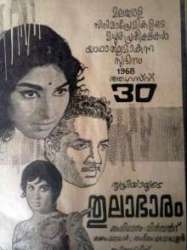
Thulabharam (1968)
Réalisé par Aloysius Vincent
Genres Drame
Thèmes Adaptation d'une pièce de théâtre
Acteurs Prem Nazir, Sharada, Madhu, Sheela, Thikkurissy Sukumaran Nair, Adoor Bhasi
Note64%





Two close friends,Vijaya (Sharada) and Vatsala (Sheela)/Kanchana(in Tamil) had to part ways after Vatsala's father, a lawyer loses a case of Vijaya's father and it results in the latter's death. Vijaya gets married to Ramu (Prem Nazir), a trade union leader against her will. Ramu leads a union strike and is killed when the agitation turns violent. Vijaya's life becomes miserable and she kills her starving children, but she is arrested before being able to commit suicide. In the end, she is given death penalty by the prosecution, led by her former dear friend Vatsala, who had become a famous lawyer in the meantime.
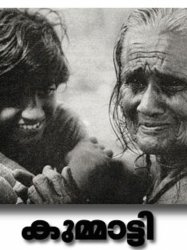
Kummatty (1979)
Réalisé par G. Aravindan
Genres Drame, Fantasy
Acteurs Kuttyedathi Vilasini
Note73%





The film is a Pied Piper-like figment of Malabar’s folklore about a partly mythic and partly real magician called Kummatty (bogeyman). Kummatty materialises from nature one day to mingle with and weave a spell of carefree abandon around the children of the village. Kummatty travels from place to place and entertains children with dancing, singing and performing magic. At one such performance at a village, Kummatty starts to mingle with and weave a spell of carefree abandon around the children of the village. He turns a group of children into animals. But one boy, who was changed into a dog, is chased away and misses the moment Kummatty changed the children back to their human form. The dog-boy has to wait a year until Kummatty returns to the village to get back his human form. All ends well and Kummatty melts back into nature.
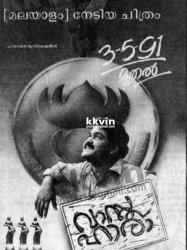
വാസ്തുഹാര (1991)
Réalisé par G. Aravindan
Genres Drame, Romance
Acteurs Mohanlal, Neena Gupta, Shobana, Padmini Ramachandran, N. L. Balakrishnan, Valsala Menon
Note74%





The film takes place in Calcutta, 1971. The story begins with rehabilitation official Venu (Mohanlal) coming to Calcutta in one of his regular visits to shift about 35 to 40 refugee families to the Andaman Islands. The current rehabilitation plan is that only those who fall under the category of schedule caste farmers. People in Andaman, too, are not happy about taking in refugees. All the refugees have been staying in Permanent Liability Camp in Rana ghat, West Bengal for the past two decades. Experiencing the shattered lives of poor displaced people deeply hurts Venu in his silent moments alone in his small lodge room frequently finds himself lost in the thoughts about the lives of the refuge seekers he meets during the day. Living an oppressed life, their only hope being the occasional promises of land, cattle, and other grants by the bureaucratic state.

Oridathu (1987)
, 1h52Réalisé par G. Aravindan
Genres Drame
Acteurs Nedumudi Venu, Sreenivasan, Thilakan, Vineeth, M. S. Thripunithura, Kunjandi
Note71%





The time is the mid-fifties, when the Indian states were being reorganised. The place is a remote village in Kerala. There is a palpable hum of excitement as the village Panchayath, led by the Brahmin landlord, is determined to bring the benefits of electricity to this backward place.
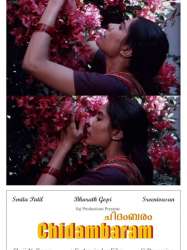
ചിദംബരം (1985)
Réalisé par G. Aravindan
Genres Drame
Acteurs Bharath Gopi, Smita Patil, Sreenivasan, Mohanlal, Murali, Nedumudi Venu
Note72%





Shankaran (Bharath Gopi) works as the Office Superintendent in a vast government farm situated in the hilly areas on the border of Kerala and Tamil Nadu. His colleague Jacob (Mohan Das) is the Field Supervisor and a work addict. The two men are poles apart in their characters. Jacob is a down-to-earth and rather commonplace sort of person, whose social pride does not conflict with his easy-going attitude to morality. Shankaran, on the other hand, is a mild-mannered loner. He has an easy, friendly relationship with the workers. Muniyandi (Sreenivasan), a worker in the farm, is a timid god-fearing man. His job is to look after the cattle. One day he confesses to Shankaran that he is going to his village to get married. When he asks Jacob for leave, Jacob brusquely tells him that he must be back immediately after the wedding. But Shankaran invites him to have a drink with him in his room. Hoping that God will not notice this minor aberration. Muniyandi says a quick prayer before taking a few swigs of rum equally quickly. Then he settles down on the floor and starts singing in the praise of the Lord. The embarrassed Shankaran has to help him to his quarters.
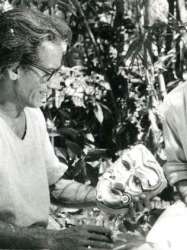
Uttarayanam (1975)
, 1h58Réalisé par G. Aravindan
Genres Drame
Acteurs Balan K. Nair, Adoor Bhasi, Sukumaran, Vijayan, Kunjandi, Nilambur Balan
Note65%





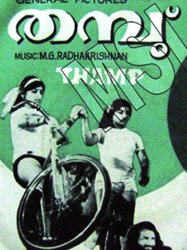
The Circus Tent (1978)
, 2h10Réalisé par G. Aravindan
Genres Drame
Thèmes Cirque
Acteurs Bharath Gopi, Nedumudi Venu, Jalaja, V K Sreeraman
Note72%





A côté d'une longue rivière scintillante, des hommes élèvent un poteau. Une tente gonfle. Là où il y avait du sable large et le clapotis de l'eau, il y a maintenant un camion, des chaises, des cerceaux, des tabourets, des cordes, des chèvres, une lionne, une paire de grosses filles, des bicyclettes et un vieil homme avec une dignité de philosophe.
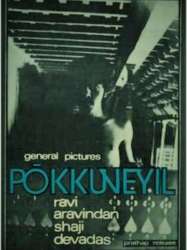
Pokkuyevil (1982)
Réalisé par G. Aravindan
Genres Drame, Musical
Acteurs Balachandran Chullikkadu, Kalpana
Note67%





The protagonist of the film is a young artist (Balachandran Chullikkad) who lives with his father, a radical friend, a Sportsman and a music-loving young woman. His world collapses when his father dies, the radical friend leaves him, the sportsman friend gets injured in an accident and has to give up sports and her family takes the woman away to another city. The final shot shows him curled up in foetal position in his cell in a mental asylum.

Daylight Saga (2012)
Réalisé par G. Aravindan
Genres Drame
Acteurs Gemini Ganesan
Note69%





Elisabeth et Johnny se rencontrent dans un bar et deviennent très rapidement inséparables. Mais Johnny est victime d'un très grave accident de voiture et reste entre la vie et la mort. Voyant Elisabeth dévastée par le chagrin, Seth, un aide soignant de l'hôpital, décide de sauver Johnny de la seule manière qu'il peut, en le transformant en vampire. Désormais, ils vont devoir tenter de construire un amour dangereux, liés par l?éternité...

Izzy et Sam (1988)
, 1h37Réalisé par Joan Micklin Silver
Origine Etats-Unis
Genres Drame, Comédie, Comédie romantique, Romance
Thèmes Religion, Religion juive, Adaptation d'une pièce de théâtre
Acteurs Amy Irving, Peter Riegert, Reizl Bozyk, Jeroen Krabbé, Sylvia Miles, George Martin
Note68%





Isabelle Grossman, Izzy pour les intimes, est une jeune femme active, indépendante et séduisante. Passionnée de littérature, elle travaille dans une prestigieuse librairie de Manhattan où elle organise régulièrement des rencontres avec les auteurs en vogue. Elle cotoie chaque jour l'élite intellectuelle de New York mais en dépit des conseils de sa grand-mère septuagénaire, Bubbie, elle reste farouchement solitaire. C'est alors que Sam Posner entre dans sa vie.
 Connexion
Connexion
